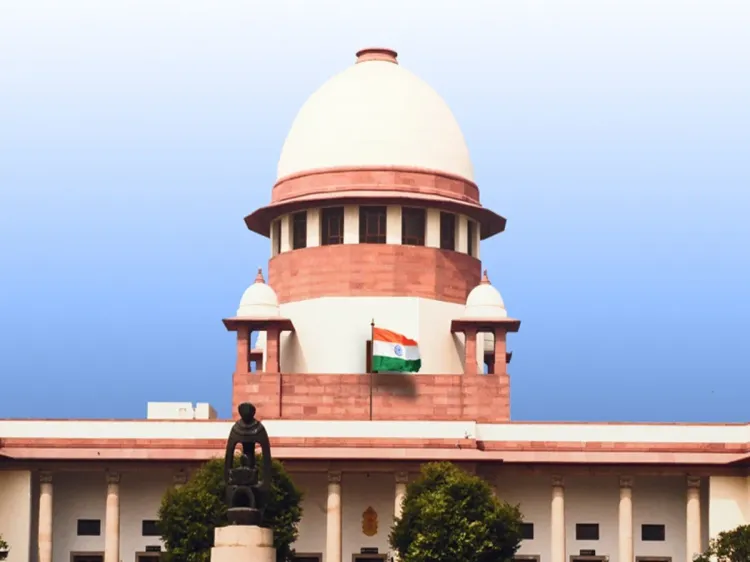How is the Supreme Court Addressing the Stray Dog Issue?

Synopsis
Key Takeaways
- Supreme Court mandates food disposal in covered bins.
- Focus on public safety and hygiene.
- Previously issued circulars reinforce these measures.
- Civic bodies are directed to capture and relocate stray dogs.
- Compliance with the directive is crucial to avoid legal repercussions.
New Delhi, Aug 12 (NationPress) The Supreme Court, acknowledging the increasing presence of stray dogs within its jurisdiction, has issued a new directive requiring that all surplus food be disposed of only in covered trash bins.
“Food must never be thrown in open areas or uncovered containers. This action is vital to discourage animals from being drawn to food sources, thus greatly lowering the chances of bites and upholding hygiene standards,” stated a circular released by the Administrative General Branch.
The notice pointed out a “notable rise” in incidents of stray dogs wandering through the Supreme Court’s hallways and even inside elevators.
This latest mandate also references a previous circular from September of last year, which came after a collaborative meeting involving Supreme Court officials and representatives from the New Delhi Municipal Council (NDMC) and the Municipal Corporation of Delhi (MCD).
That earlier directive reiterated the same fundamental rule that leftover food should not be thrown in open spaces or uncovered receptacles.
Just the day prior, a panel of Justices J.B. Pardiwala and R. Mahadevan urged civic authorities across Delhi-NCR to promptly capture all stray dogs and transfer them to shelters, expressing serious concerns regarding public safety and the growing threat of rabies.
The panel led by Justice Pardiwala described the scenario as “dire” and stressed the need for immediate measures to protect children, women, and the elderly on the streets.
Instructing the MCD, NDMC, and civic bodies in Noida, Gurugram, and Ghaziabad to completely cleanse the streets of stray dogs, the Supreme Court issued a firm warning that any entity impeding their removal would face stringent legal repercussions.
The Supreme Court mandated these civic bodies to commence the collection of all stray dogs within their areas and transport them to designated shelters. If such facilities are not already available, authorities have been directed to create them promptly and present a report on the infrastructure to the Supreme Court within eight weeks.









